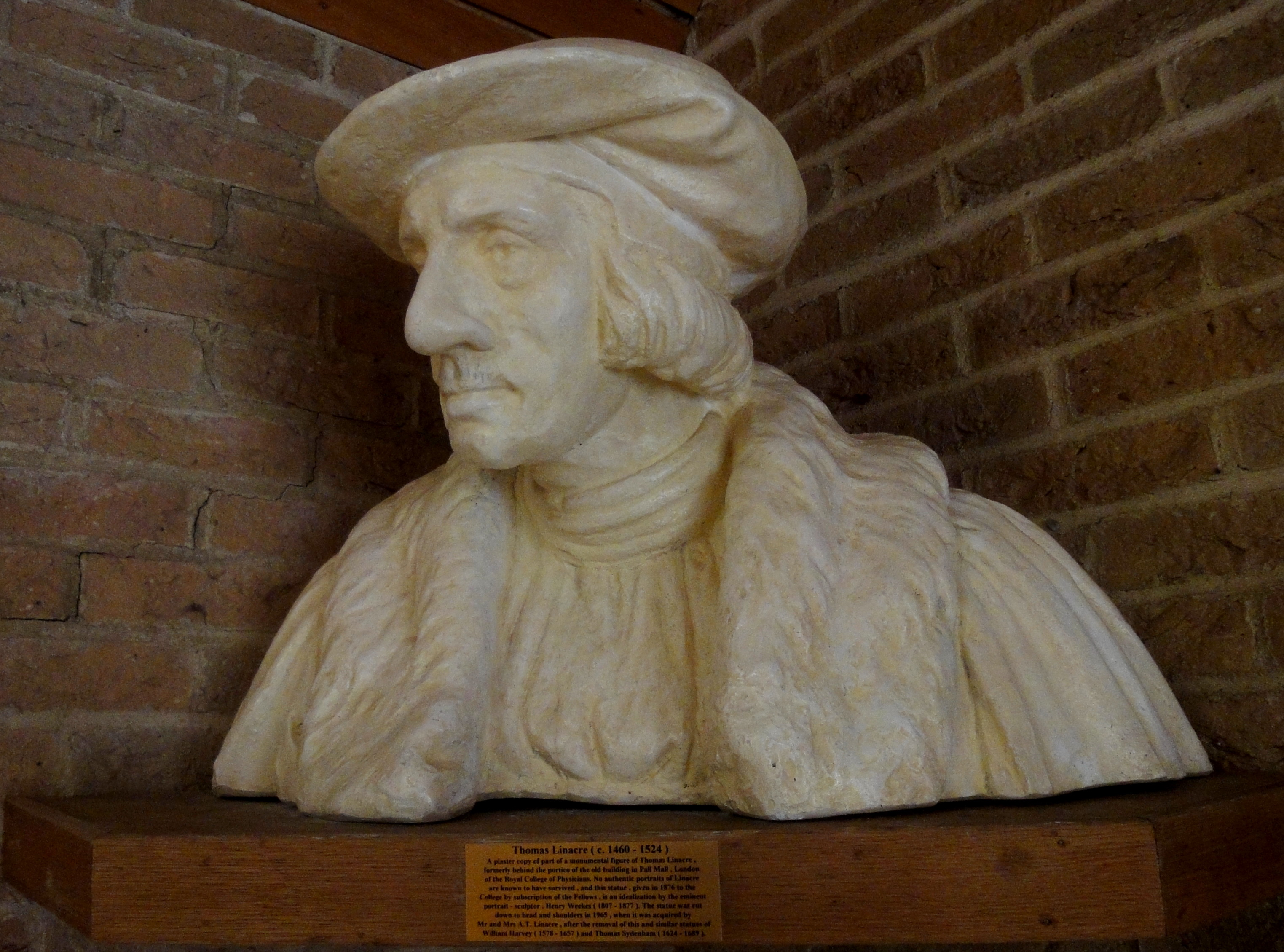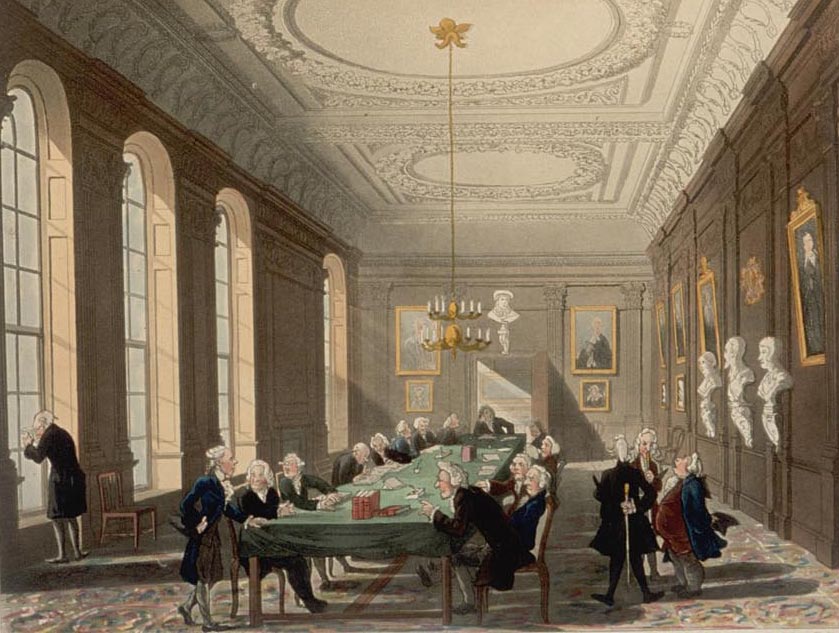|
John Noble Johnson
John Noble Johnson (1787 – 6 October 1823) was an English physician and biographer of Thomas Linacre. Biography Johnson was the son of John Johnson, physician, of Aylesbury, entered at Magdalen Hall, Oxford, on 23 May 1803, aged 16 (Foster, Alumni Oxonienses). He graduated B.A. 1807, M.A. 1810, M.B. 1811, and M.D. 1814. He became a fellow of the Royal College of Physicians in 1815, and was Gulstonian lecturer The Goulstonian Lectures are an annual lecture series given on behalf of the Royal College of Physicians in London. They began in 1639. The lectures are named for Theodore Goulston (or Gulston, died 1632), who founded them with a bequest. By his ... at the college in 1816. In 1818 he was elected physician to the Westminster Hospital, but resigned his office in 1822, and died on 6 October 1823 at the Albany, London. Before his death he had completed an admirable ‘Life of Thomas Linacre’, founder of the College of Physicians, with memoirs of his contemporaries. It was ... [...More Info...] [...Related Items...] OR: [Wikipedia] [Google] [Baidu] |
Thomas Linacre
Thomas Linacre or Lynaker ( ; 20 October 1524) was an English humanist scholar, Catholic priest, and physician, after whom Linacre College, Oxford, and Linacre House, a boys' boarding house at The King's School, Canterbury, were named. Linacre was more of a scholar than a scientific investigator. It is difficult to judge his practical skill in his profession, but it was highly esteemed in his own day. He took no part in political or theological questions, but his career as a scholar was characteristic of the critical period in the history of learning through which he lived. He was one of the first Englishmen to study Greek, in Italy, and brought back to his native country and his own university the lessons of the " New Learning". His teachers were some of the greatest scholars of the day. Among his pupils was one—Erasmus—whose name alone would suffice to preserve the memory of his instructor in Greek, and others of note in letters and politics, such as Sir Thomas More, Pri ... [...More Info...] [...Related Items...] OR: [Wikipedia] [Google] [Baidu] |
Magdalen Hall, Oxford
Hertford College ( ), previously known as Magdalen Hall, is a constituent college of the University of Oxford in England. It is located on Catte Street in the centre of Oxford, directly opposite the main gate to the Bodleian Library. The college’s Old and New Quadrangles are connected by the Bridge of Sighs. There are around 600 students at the college at any one time, comprising undergraduates, graduates and visiting students from overseas. The first foundation on the Hertford site began in the 1280s as Hart Hall and became a college in 1740 but was dissolved in 1816. In 1820, the site was taken over by Magdalen Hall, which had emerged around 1490 on a site adjacent to Magdalen College. In 1874, Magdalen Hall was incorporated as a college, reviving the name Hertford College. In 1974, Hertford was part of the first group of all-male Oxford colleges to admit women. Hertford College specialises in both Irish studies and Irish history. Hertford has long been associated with I ... [...More Info...] [...Related Items...] OR: [Wikipedia] [Google] [Baidu] |
Royal College Of Physicians
The Royal College of Physicians of London, commonly referred to simply as the Royal College of Physicians (RCP), is a British professional membership body dedicated to improving the practice of medicine, chiefly through the accreditation of physicians by examination. Founded by royal charter from King Henry VIII in 1518, as the College of Physicians, the RCP is the oldest medical college in England. The RCP's home in Regent's Park is one of the few post-war buildings to be listed at Grade I. In 2016 it was announced that the RCP was to open new premises in Liverpool at The Spine, a new building in the Liverpool Knowledge Quarter. The Spine opened in May 2021. History The college was incorporated as "the President and College or Commonalty of the Faculty of Physic in London" when it received a royal charter in 1518, affirmed by Act of Parliament in 1523. It is not known when the name "Royal College of Physicians of London" was first assumed or granted. It came into use aft ... [...More Info...] [...Related Items...] OR: [Wikipedia] [Google] [Baidu] |
Gulstonian Lecturer
The Goulstonian Lectures are an annual lecture series given on behalf of the Royal College of Physicians in London. They began in 1639. The lectures are named for Theodore Goulston (or Gulston, died 1632), who founded them with a bequest. By his will, dated 26 April 1632, he left £200 to the College of Physicians of London to found a lectureship, to be held in each year by one of the four youngest doctors of the college. These lectures were annually delivered from 1639, and have continued for more than three centuries. Up to the end of the 19th century, the spelling ''Gulstonian'' was often used. In many cases the lectures have been published. Gulston's widow bequeathed the annual donation to the College of Physicians for them to arrange for one of the four youngest doctors to "read the lecture on some dead body (if it could be procured), to be dissected as the President and Elects should think necessary for the diseases to be treated of; the lecture to be read yearly, between C ... [...More Info...] [...Related Items...] OR: [Wikipedia] [Google] [Baidu] |
1787 Births
Events January–March * January 9 – The North Carolina General Assembly authorizes nine commissioners to purchase of land for the seat of Chatham County. The town is named Pittsborough (later shortened to Pittsboro), for William Pitt the Younger. * January 11 – William Herschel discovers Titania and Oberon, two moons of Uranus. * January 19 – Mozart's '' Symphony No. 38'' is premièred in Prague. * February 2 – Arthur St. Clair of Pennsylvania is chosen as the new President of the Congress of the Confederation.''Harper's Encyclopaedia of United States History from 458 A. D. to 1909'', ed. by Benson John Lossing and, Woodrow Wilson (Harper & Brothers, 1910) p167 * February 4 – Shays' Rebellion in Massachusetts fails. * February 21 – The Confederation Congress sends word to the 13 states that a convention will be held in Philadelphia on May 14 to revise the Articles of Confederation. * February 28 – A charter is granted, ... [...More Info...] [...Related Items...] OR: [Wikipedia] [Google] [Baidu] |
1823 Deaths
Events January–March * January 22 – By secret treaty signed at the Congress of Verona, the Quintuple Alliance gives France a mandate to invade Spain for the purpose of restoring Ferdinand VII (who has been captured by armed revolutionary liberals) as absolute monarch of the country. * January 23 – In Paviland Cave on the Gower Peninsula of Wales, William Buckland inspects the " Red Lady of Paviland", the first identification of a prehistoric (male) human burial (although Buckland dates it as Roman). * February 3 ** Jackson Male Academy, precursor of Union University, opens in Tennessee. ** Gioachino Rossini's opera ''Semiramide'' is first performed, at ''La Fenice'' in Venice. * February 10 – The first worldwide carnival parade takes place in Cologne, Prussia. * February 11 – Carnival tragedy of 1823: About 110 boys are killed during a stampede at the Convent of the Minori Osservanti in Valletta, Malta. * February 15 (approx.) – The first officially recognis ... [...More Info...] [...Related Items...] OR: [Wikipedia] [Google] [Baidu] |
19th-century English Medical Doctors
The 19th century began on 1 January 1801 (represented by the Roman numerals MDCCCI), and ended on 31 December 1900 (MCM). It was the 9th century of the 2nd millennium. It was characterized by vast social upheaval. Slavery was abolished in much of Europe and the Americas. The First Industrial Revolution, though it began in the late 18th century, expanded beyond its British homeland for the first time during the 19th century, particularly remaking the economies and societies of the Low Countries, France, the Rhineland, Northern Italy, and the Northeastern United States. A few decades later, the Second Industrial Revolution led to ever more massive urbanization and much higher levels of productivity, profit, and prosperity, a pattern that continued into the 20th century. The Catholic Church, in response to the growing influence and power of modernism, secularism and materialism, formed the First Vatican Council in the late 19th century to deal with such problems and confirm ce ... [...More Info...] [...Related Items...] OR: [Wikipedia] [Google] [Baidu] |
Alumni Of Hertford College, Oxford
Alumni (: alumnus () or alumna ()) are former students or graduates of a school, college, or university. The feminine plural alumnae is sometimes used for groups of women, and alums (: alum) or alumns (: alumn) as gender-neutral alternatives. The word comes from Latin, meaning nurslings, pupils or foster children, derived from "to nourish". The term is not synonymous with "graduates": people can be alumni without graduating, e.g. Burt Reynolds was an alumnus of Florida State University but did not graduate. The term is sometimes used to refer to former employees, former members of an organization, former contributors, or former inmates. Etymology The Latin noun means "foster son" or "pupil". It is derived from the Latin verb "to nourish". Separate, but from the same root, is the adjective "nourishing", found in the phrase ''alma mater'', a title for a person's home university. Usage in Roman law In Latin, is a legal term (Roman law) to describe a child placed in fosterag ... [...More Info...] [...Related Items...] OR: [Wikipedia] [Google] [Baidu] |





